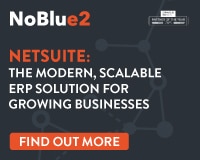Forterro is one of our exhibitors at itSHOWCASE and is a provider of specialised software solutions for the industrial market.
In this article taken from their blog, Forterro explains the meaning of ‘Smart Industry’.
WHAT IS SMART INDUSTRY?
The term ‘smart industry’ refers to the use of technology to improve all aspects of industrial operations – including manufacturing, purchasing, logistics, distribution and customer relationship management.
Typically, it has focused on the use of software, online automation and data analytics to improve the efficiency, flexibility and sustainability of industrial processes. But it also paves the way for the wider adoption of new innovations, such as the Internet of Things (IoT), artificial intelligence (AI), machine learning (ML) and robotics.
In short, smart industry is digital transformation.
What are some smart industry benefits?
With a digital-first approach, industrial businesses can achieve ever-advancing levels of competitive advantage. And as the capabilities of software and technology continue to develop, more and more opportunities will emerge for them to strengthen and accelerate their activities throughout supply chains.
By adopting these tools into their operations, a range of improvements can be unlocked:
Efficiency: By automating mundane and time-consuming tasks, teams can achieve greater accuracy and reduce wasted time – applying resource where it’s needed most.
Flexibility: Smart and agile business systems can help to quickly identify where process improvements can be made, or where market opportunities exist.
Sustainability: Digital solutions are a critical component for any company that wants to fully understand, analyse and reduce its environmental footprint.
Quality: Software and technology drives accuracy, supporting organisations to maintain quality in production – as well as ensuring robust traceability and stock management.
Control: Businesses adopting connected technology in their operations can gain greater oversight and insight, while also having a 360 view of cost and expenditure.
These outcomes mean smart industry can be leveraged to drive end-to-end visibility, positively impact stakeholder relationships and drive fully informed decision-making.
Software and smart industry
There are several types of specialised software within the industrial market that support business and operational requirements – with features and functionality for complex requirements across supply chains. Here at Forterro, we break these down into four main categories:
- Manage – ERP (enterprise resource planning) software to drive optimised production, inventory, supply chain and financial management.
- Make – MRP (material requirements planning) software to take control of end-to-end manufacturing processes.
- Distribute – WMS (warehouse management systems) software to revolutionise warehouse operations and stock management.
- Sell – POS (point of sale) solutions to manage multi-channel retail and commerce with one integrated platform.
Each of these systems, or a combination depending on the type and nature of the business using them, are the foundation of a smart-industry approach. And while each is focused on a specific part of the supply chain, they provide key common outputs.
Process automation: The systems automate many manual tasks, such as production planning, inventory management and order processing. This frees up resource to focus on more complex tasks, high-impact activities and strategic initiatives.
Data integration: The systems help integrate data from all aspects of a business, including production, inventory, finance, and sales. The result is a single view of operations, essential for making data-driven decisions and driving future growth.
Reporting and analytics: The systems typically include powerful business intelligence tools, including KPI indicators and dashboards. This information can be used to identify areas for improvement, optimise production processes and predict future demand.
Smart industry in the real world
Yes, this all sounds good in theory, but it’s very much real – and the impact of smart industry is clear to see.
In the automotive industry, it could be a parts manufacturer using smart sensors to collect data on machine performance and product quality, which is then used to optimise production processes and identify potential problems early on.
In food and beverage, it could be using smart software to track the movement of products through a supply chain, helping to ensure that products are delivered to customers on time and in good condition.
In machinery manufacture, it could be smart insights being used to develop new products and services more quickly and efficiently, because performance data has helped to optimise manufacturing processes.
Forterro is proud to serve thousands of these type of businesses in the industrial mid-market – heroes of the modern economy making, distributing and selling the components that power our world. You can learn more about how smart industry is helping them to succeed through our range of customer showcase stories.
Find out more about our itSHOWCASE exhibitors here






